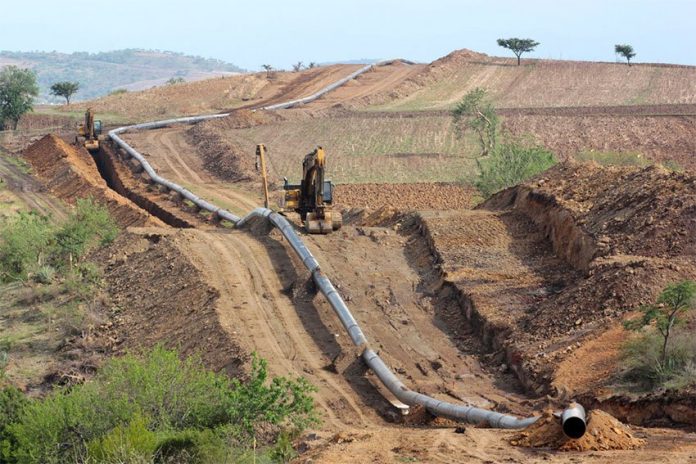Amid international criticism, the Federal Electricity Commission (CFE) announced yesterday that it had filed requests for arbitration in courts in the United Kingdom and France to annul clauses in seven gas pipeline contracts.
The CFE said it had lodged preliminary claims to void certain clauses in contracts with the companies Fermaca, Carso, IEnova and TC Energy (formerly TransCanada Corporation).
The public utility said last week that it wished to negotiate a “fairer” outcome to contract disputes. President López Obrador has described the terms of the contracts with the pipeline construction companies as “abusive” to the state.
The CFE has previously said that it will have to pay 16 billion pesos (US $840 million) to the operators of the seven pipelines this year even though the projects are not yet operational as they have faced delays due to community opposition.
The London Court of International Arbitration has been asked to hear six cases, while the mediation of the International Court of Arbitration in Paris has been sought in one.
The legal action relates to contracts for the pipelines Tuxpan-Tula (TC Energy); Tula-Villa de Reyes (TC Energy); Samalayuca-Sásabe (Carso); Guaymas-El Oro (IEnova); La Laguna-Aguascalientes (Fermaca); Villa de Reyes-Aguascalientes-Guadalajara (Fermaca); and Texas-Tuxpan (TC Energy/IEnova).
Earlier yesterday, the United States Chamber of Commerce (USCC) criticized the CFE for seeking to nullify clauses in the contract for the submarine gas line between Texas and Tuxpan, Veracruz, a US $2.5-billion project that was completed last month.
The USCC said in a statement that President López Obrador pledged at the United States-Mexico CEO Dialogue in Mérida, Yucatán, earlier this year, to honor existing contracts.
It also said that there are “few factors more critical to investment and economic growth than the legal certainty and predictability fostered by the respect for the rule of law.”
“For these reasons, we are concerned by CFE’s decision to seek arbitration to nullify several key terms of the contract with the owners of the Sur de Texas-Tuxpan pipeline, a key infrastructure project that would contribute to economic development and job creation in the states of southern Mexico,” the USCC said.
“This action risks sending a negative signal to U.S. and other international investors about the business and investment climate in Mexico. We therefore urge CFE and the government of Mexico to reconsider this decision and to observe the president’s pledge to honor the sanctity of existing contracts.”
Canada’s ambassador to Mexico said last week that he was “deeply concerned” about the CFE’s decision to take legal action aimed at nullifying clauses in the contract for the Texas-Tuxpan line.
Pierre Alarie charged that the move showed that “despite López Obrador’s statements, Mexico doesn’t want to respect gas pipeline contracts.”
Fitch Ratings said the pursuit of arbitration was “credit-negative” for the CFE, the companies involved and the energy sector in general.
The president said last week that the government would seek to reach an agreement with Canada’s TC Energy, while the CFE announced yesterday that it had begun talks with Fermaca.
“All the companies have agreed to talk about the contracts. Today we met with Fermaca to determine how to negotiate,” said CFE spokesman Luis Bravo.
He added that the discussions will take place in parallel to the international arbitration process. The two parties agreed to meet again on July 12.
Today, Carlos Salazar Lomelín, president of the Business Coordinating Council, a leading private sector group, said that he had reached an agreement with López Obrador to hold conciliation sessions between representatives of the government and the four companies subject to the CFE legal action.
“We had a very friendly meeting with the president . . . [and] we came to the conclusion that we are going to favor dialogue . . . we’re going to form a conciliation board to try to put aside the legal problem and to try to reach a solution that benefits everyone,” he said.
The business leader explained that the president will decide who represents the government and that he and Mexican Business Council president Antonio del Valle will put together a team to act in the interests of Fermaca, Carso, IEnova and TC Energy.
Although Salazar acknowledged that the CFE will continue to pursue the international arbitration processes it has initiated, he asserted that “we’re going to try to find meeting points instead of being in a legal dispute that doesn’t benefit anyone.”
Source: El Economista (sp), Reuters (en), Milenio (sp)
